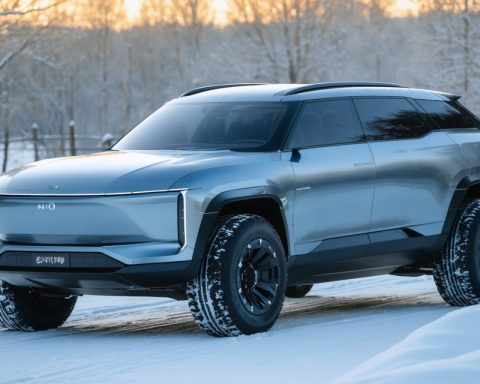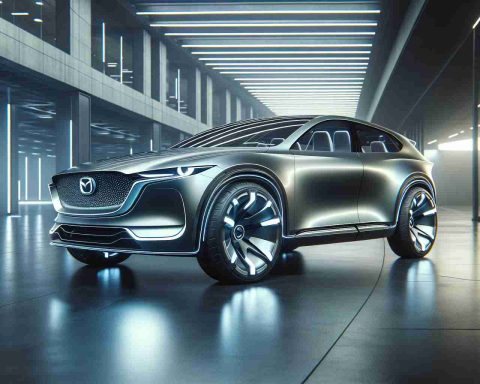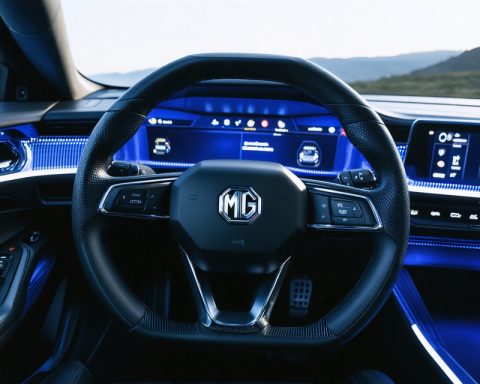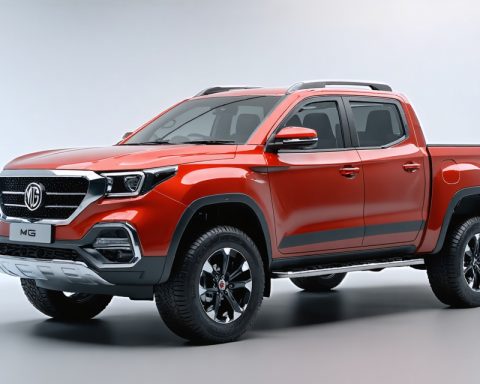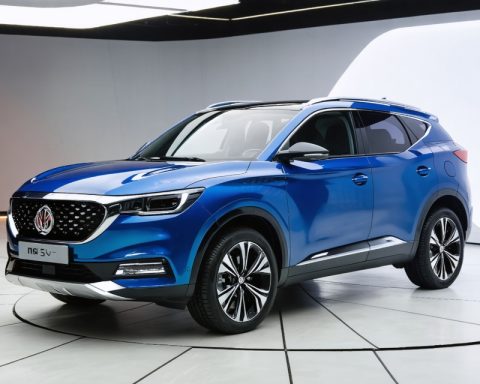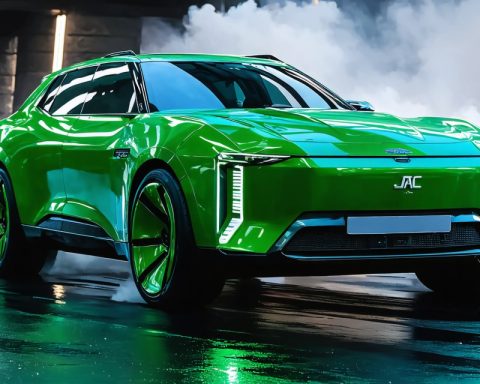- Porsche is pioneering an EV battery recycling initiative to address sustainability and environmental challenges.
- A key focus is on recovering critical raw materials such as nickel, cobalt, manganese, and lithium from used batteries.
- The process transforms used batteries into “black mass,” enabling the extraction of essential elements for new battery production.
- Porsche has already extracted 65 tonnes of “black mass,” highlighting its commitment to innovative resource management.
- Porsche plans to incorporate recycled materials into new battery cells, emphasizing material consistency and quality.
- This initiative supports a circular economy, reducing environmental impact and reliance on volatile raw material markets.
- Porsche’s approach aligns with upcoming EU regulations on battery recycling and traceability.
- Porsche’s strategy blends luxury with sustainability, influencing industry norms through innovation and ecological responsibility.
Porsche, the legendary automaker known for its high-performance sports cars, is now forging a new path. Amidst a global shift towards sustainability and environmental responsibility, the company has embarked on a groundbreaking project to tackle one of the most pressing issues of the electric vehicle (EV) era: battery waste.
In an intriguing initiative, Porsche has launched a multi-phase pilot program that reimagines the life cycle of high-voltage EV batteries. At the heart of this project is an innovative technique focused on the recovery of critical raw materials such as nickel, cobalt, manganese, and lithium. Through a meticulous process that involves mechanical shredding, used batteries are transformed into what’s known as “black mass”—a term that underscores both its color and potential.
This “black mass” becomes the gateway to a treasure trove of elements crucial for battery manufacturing. Porsche has already extracted approximately 65 tonnes of this valuable material from batteries of development vehicles. Each particle is a testament to the company’s commitment to sustainability and innovative resource management.
The recycling method is just the beginning. Porsche has also developed advanced processes to refine this “black mass” further, separating high-purity metals needed for new battery cells. This refinement is not merely about extraction; it is about precision. Porsche insists that material consistency and purity are non-negotiable, a standard that ensures their batteries not only meet but exceed the quality benchmarks the brand is known for.
Looking into the future, Porsche plans a bold step: integrating a specified percentage of these recycled materials into new battery cells for real-world testing in upcoming EV models. This visionary approach is not just a testament to Porsche’s engineering prowess, but a reflection of the company’s broader commitment to a circular economy. By embracing a closed-loop system, Porsche aims to significantly cut down environmental footprint, alleviate reliance on volatile raw material markets, and comply with forthcoming stringent EU regulations on battery recycling and traceability.
The implications of this initiative extend beyond environmental stewardship. As the world transitions into a more electrified future, Porsche’s proactive stance could redefine industry norms, marrying luxury with sustainability. This move is a masterclass in strategic foresight, with Porsche positioning itself at the nexus of innovation and ecological responsibility.
Through this venture, Porsche not only aims to future-proof its supply chain but also to elevate the standard for sustainable manufacturing. It is a vivid illustration of how creativity and technology can turn a pressing environmental challenge into an opportunity for transformative success.
In this journey from waste to resource, Porsche is steering us towards a future where sustainability and luxury coexist, driving change with the same precision and passion that defines every vehicle that bears its iconic crest.
Porsche Revolutionizes EV Battery Recycling: Discover Their Groundbreaking Strategy
Introduction to Porsche’s Battery Recycling Initiative
Porsche, renowned for its high-performance sports cars, is shifting gears towards sustainability with an innovative project to tackle EV battery waste, setting a new standard in the automotive industry. This initiative not only positions Porsche as a leader in environmental responsibility but also as a major innovator in the luxury EV market.
Detailed Breakdown of Porsche’s Recycling Process
1. Mechanical Shredding and Black Mass Production:
– Process Explanation: Porsche’s recycling journey starts with mechanically shredding used EV batteries to produce “black mass,” a substance rich in critical raw materials like nickel, cobalt, manganese, and lithium.
– Significance: Creating black mass effectively centralizes raw materials, making them easier to extract and purify, which is crucial for producing new battery cells.
2. Extraction and Refinement:
– Technique: After black mass production, advanced processes are employed to separate and refine high-purity metals. This precision ensures that the recycled materials match strict quality standards necessary for new batteries.
– Outcome: Porsche has already extracted around 65 tonnes of valuable materials, highlighting its commitment to effective resource management.
Real-World Use Cases and Insights
1. Integration into New Batteries:
– Implementation: Porsche plans to integrate a specified percentage of recycled materials into new battery cells, which will undergo real-world testing in upcoming EV models.
– Impact: This effort underscores a closed-loop system approach, aiming to reduce environmental impact and reliance on raw material markets, while also adhering to future EU regulations.
2. Implications for the Automotive Industry:
– Trend Setting: Porsche’s proactive recycling measures might become a benchmark across the industry, prompting other automakers to adopt similar sustainable practices.
– Luxury Meets Sustainability: This initiative could redefine how luxury brands incorporate eco-friendly methods without compromising on quality or performance.
Market Forecasts and Industry Trends
1. Growth in EV Battery Recycling:
– Market Projections: As more automakers explore battery recycling, the industry is expected to grow significantly, with Europe setting regulations that could drive innovation and investment in this sector.
– Porsche’s Role: By establishing a pioneering presence, Porsche is well-positioned to capitalize on these trends, reinforcing its market leadership.
2. Increased Demand for Recycling Technology:
– Innovation Opportunities: As EV adoption accelerates, the demand for efficient battery recycling technologies will likely rise, presenting opportunities for companies to innovate and enhance these processes.
Challenges and Considerations
1. Controversies and Limitations:
– Recycling Challenges: While Porsche’s methods are innovative, the recycling process remains technically challenging and resource-intensive.
– Economic Viability: Achieving economic viability on a large scale is crucial for widespread adoption within the industry.
2. Compliance and Environment:
– Regulatory Landscape: With upcoming stringent EU regulations, compliance will be key, potentially influencing recycling technology development and implementation.
Actionable Recommendations and Tips for Consumers
– Stay Informed: As consumers increasingly turn to EVs, staying informed about sustainability initiatives can help guide purchasing decisions.
– Consider Lifecycle Impact: Evaluate a brand’s commitment to sustainability when purchasing vehicles, understanding the impact of their manufacturing and recycling practices.
– Advocate for Recycling: Encourage brands and policymakers to support and develop battery recycling initiatives for a more sustainable future.
Porsche’s trailblazing efforts in EV battery recycling demonstrate how luxury and ecological responsibility can coexist harmoniously, offering a new standard for the automotive industry. As we embrace an electrified future, these initiatives will be crucial in fueling a sustainable revolution.
For more about sustainability and innovations in the automotive industry, explore Porsche.






